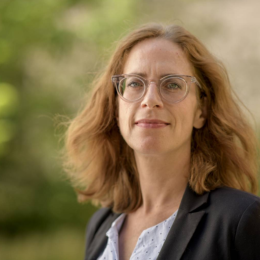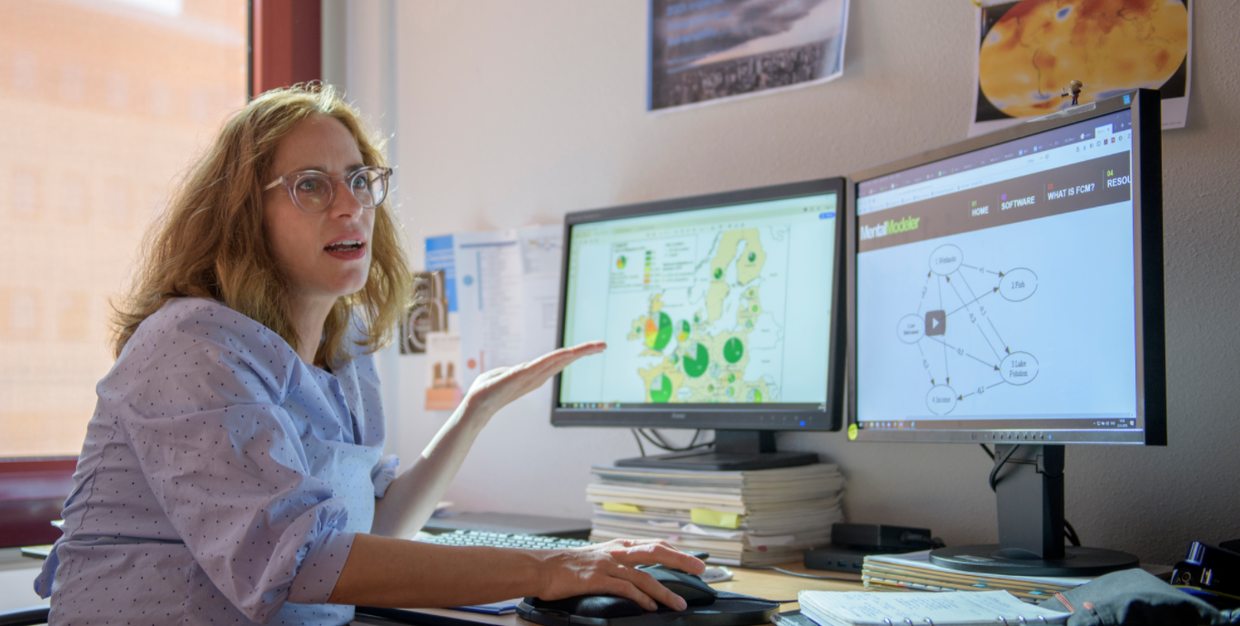As society experiences increasingly frequent and severe natural hazard events and environmental stressors—while making little progress at reducing carbon emissions—the need to adapt to the changing climate has become starkly clear. But what actions are we taking to adapt to climate change around the world—and how effective are our efforts? A global network of 126 researchers sought to answer those questions, producing the most systematic and comprehensive assessment of implemented human adaptation to climate change to date.
The study, published online Oct. 28 in the journal Nature Climate Change, found that adaptation, as documented in the scientific literature, is mostly fragmented and incremental, undertaken primarily by individuals and households, rather than comprehensive and coherent efforts by communities and institutions. Lead study author Lea Berrang Ford, Professor and Priestley Research Chair in Climate and Health at University of Leeds’ Priestley International Centre for Climate said "our results provide a warning call: we found very little evidence of widespread and rapid preparedness at a scale that we think is likely to be adequate to avoid severe climate impacts."
Drilling down on the specific findings of the study, the researchers noted that behavioral adjustments by individuals and households are more prevalent than any other type of response, largely motivated by drought and precipitation variability. Local governments and civil society are engaging in risk reduction across all sectors and regions, particularly in response to flooding. Urban technological and infrastructural adaptations to flood risk are prevalent in Europe, while shifts in farming practices dominate reporting from Africa and Asia.
'Doing the right thing'
Diana Reckien, Associate Professor Climate Change and Inequality, at UT-ITC Department of Urban and Regional Planning, Vhalinavo Khavagali, PhD Candidate in the same department, and Maarten van Aalst, Professor Climate and Disaster Resilience, at UT-ITC department of Earth System Analysis, are co-authors of the study. Diana Reckien says the study stands for tremendous progress in structurally assessing the global evidence on adaptation, but also sees the urgent need for more. “I am thrilled how much evidence of adaptation we actually found in the scholarly literature. Probably there is even more adaptation taking place, as not every single action is documented. However, our results also show how little focus is put on doing ‘the right thing’, as we find very little information on whether adaptation is effective and reduces risk. We need much more post-assessment of adaptation, assessing adaptation effectiveness, but also co-benefits and trade-offs, to arrive at the evidence of adaptation success."
Authors arrived at their findings by employing a sophisticated methodological approach to take stock of climate change adaptation efforts as documented in the scientific literature from 2013-2020—screening more than 48,000 research articles in the process. They then used systematic literature review methods to synthesize the resulting set of 1,682 articles to identify who, where, and how people are engaging in adaptation. The release of the study proved timely—just ahead of the 26th United Nations Framework Convention on Climate Change (COP26) in Glasgow, Scotland. The Paris Agreement commits parties of the Agreement to track progress toward adaptation.
More information
There are also a number of spin-off papers just coming out or coming out soon that draw on the same Global Adaptation Mapping Initiative (GAMI) database to explore a wide range of topics. Please visit the website for more information here. Authors hope that this is just the beginning of data that can help governments and practitioners make evidence-based decisions and increase their efforts on adaptation.
More recent news
 Fri 12 Dec 2025Retrospective of the UT Climate Event 2025
Fri 12 Dec 2025Retrospective of the UT Climate Event 2025 Fri 5 Dec 2025Transforming urban policy for a healthier and safer Enschede (and other cities)
Fri 5 Dec 2025Transforming urban policy for a healthier and safer Enschede (and other cities) Fri 28 Nov 2025ITC PhD Publication Award 2025 Ceremony
Fri 28 Nov 2025ITC PhD Publication Award 2025 Ceremony Mon 10 Nov 2025Dutch spinoff launches groundbreaking global flood forecasting tool
Mon 10 Nov 2025Dutch spinoff launches groundbreaking global flood forecasting tool Wed 5 Nov 2025New Geoversity course on Geospatial Auditing launched in collaboration with the Netherlands Court of Audit
Wed 5 Nov 2025New Geoversity course on Geospatial Auditing launched in collaboration with the Netherlands Court of Audit



